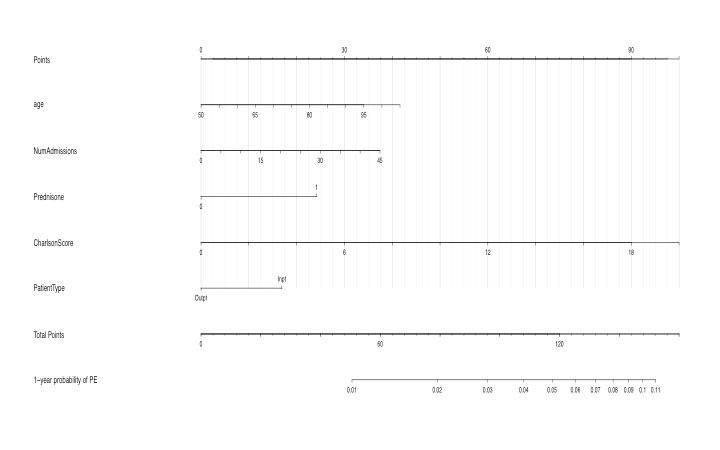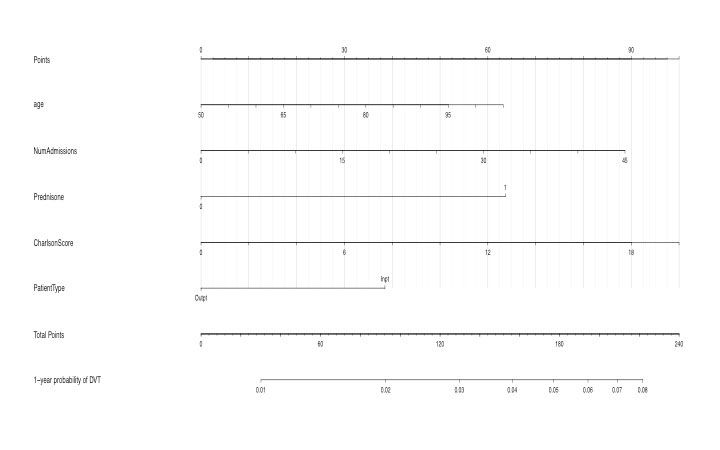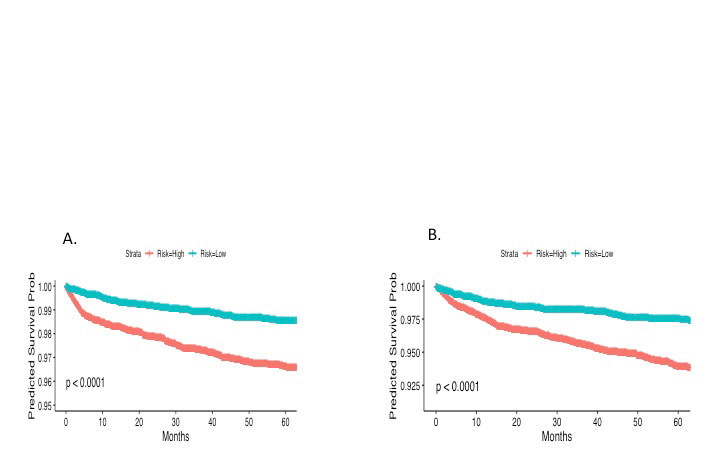Session Information
Date: Saturday, November 12, 2022
Title: Vasculitis – Non-ANCA-Associated and Related Disorders Poster I: Giant Cell Arteritis
Session Type: Poster Session A
Session Time: 1:00PM-3:00PM
Background/Purpose: Giant cell arteritis (GCA) is an independent risk factor for thromboembolic events. The purpose of our study was to identify prognostic factors for thromboembolic events in patients with GCA and develop quantitative predictive tools for pulmonary embolism (PE) and deep venous thrombosis (DVT).
Methods: In this retrospective analysis we included a total of 13,029 patients with GCA. We investigated potential predictors of PE and DVT by using univariate and multivariate Cox regression models. Nomograms were then constructed based on the results of these Cox models. We also assessed the accuracy and predictive ability of our models by using calibration curves and cross-validation concordance index.
Results: Age, inpatient status at the time of initial diagnosis of GCA, number of hospitalizations after diagnosis of GCA, duration of glucocorticoid therapy for at least 6 months, and 5 year average Charlson score prior to the diagnosis of GCA were all found to be predictive factors of thromboembolic events. Prognostic nomograms were then prepared based on these predictors with promising prognostic ability (Figures 1 and 2). The probability of surviving thromboembolic events over an observation period of 5 years was illustrated with survival plots, after stratifying patients based on predicted risk (Figure 3). The concordance index of the survival models for both PE and DVT was 0.64, indicating a good predictive ability.
Conclusion: Our suggested nomograms based on specific prognostic factors can accurately predict the 1-year probability of developing PE or DVT among patients with GCA.
To cite this abstract in AMA style:
Michailidou D, Zhang T, Diamantopoulos A, Stamatis P, Ng B. Predictive Models for Thromboembolic Events in Giant Cell Arteritis: A US Veterans Health Administration Population-Based Study [abstract]. Arthritis Rheumatol. 2022; 74 (suppl 9). https://acrabstracts.org/abstract/predictive-models-for-thromboembolic-events-in-giant-cell-arteritis-a-us-veterans-health-administration-population-based-study/. Accessed .« Back to ACR Convergence 2022
ACR Meeting Abstracts - https://acrabstracts.org/abstract/predictive-models-for-thromboembolic-events-in-giant-cell-arteritis-a-us-veterans-health-administration-population-based-study/



